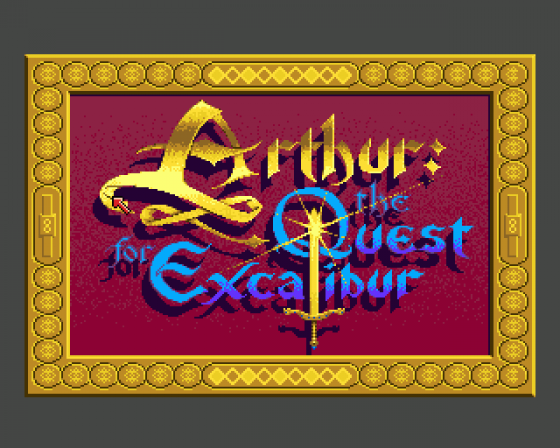
Commodore User
 1st August 1989
1st August 1989
Published in Commodore User #72
Arthur: The Quest For Excalibur
The rumours are that Infocom is folding - but one of the blue comes Arthur, their latest Interactive Fiction game. That means it plays like an adventure as opposed to an RPG, yet its scoring system has definite RPG overtones. As you progress through the adventure, certain actions cause you to be awarded points for chivalry, wisdom, experience, and for the quest itself.
You play Arthur, but you're too young and not yet wise enough to become king. The local chieftain, King Lot, has secretly plundered Excalibur, and dropped it in the lake. Flourishing a replica of the sword before his people, he proclaims himself king.
What a rip off! Never mind, Merlin is keeping a fatherly eye on your interests, but before you can claim your birthright, you must prove yourself worthy.
Merlin is prepared to help you but stops short of giving you the full range of magic powers. You are, however, granted the power to give yourself the form of one of five different creatures.
But this power is limited. You have to change from creature to creature via human form; you can be killed for practising sorcery if you're caught, and it's difficult to carry objects when you aren't human. All of this leads to some nicely constructed logic puzzles.
And it leads to humour too! All too often, quest games take themselves a trifle too seriously. But Infocom's humour shows through, and there are many funny moments.
Zork Zero and Shogun gave the world and the first Infocom graphics, the latter with pictures that scrolled off the screen with the text, the former with an occasional full-screen picture. Both games set the text under a graphics "arch". Here, the ever-flexible formula is one again varied, with the screen split dead across the middle, text under it, and above is a banner containing a cameo picture for each location. On-screen mapping is also provided, but here the text is not hidden as in Zork Zero; it simply replaces the graphics part of the screen. So, movement by clicking on the map is very slick, as you can read your way through the text without having to switch between the two, which is really handy.
Written by Bob Bates, author of Sherlock: The Riddle Of The Crown Jewels, Arthur is an original story in its own right, very loosely based on the legend. The game itself is another example of the highly professional products we have come to expect from the world's masters of adventure.



